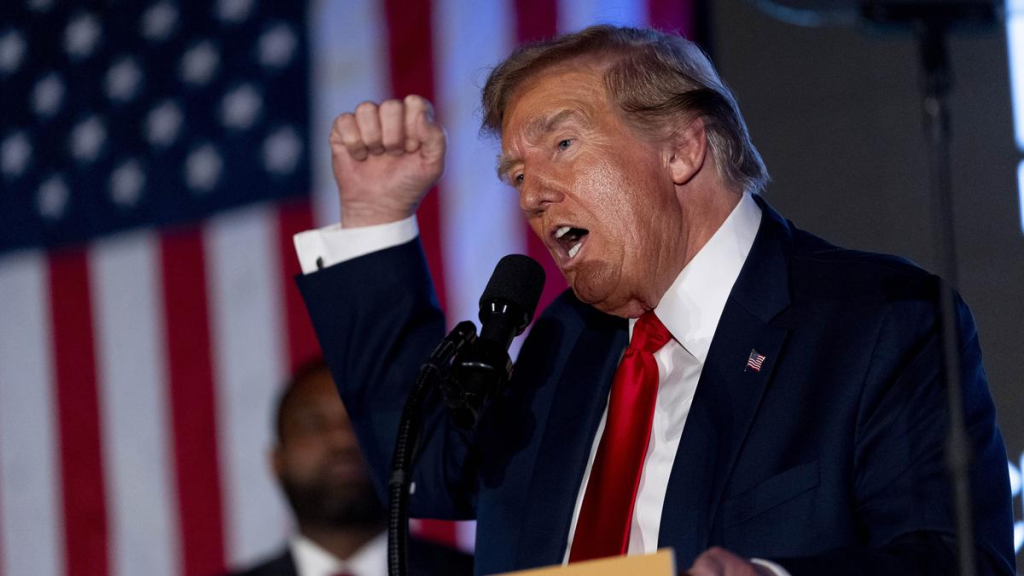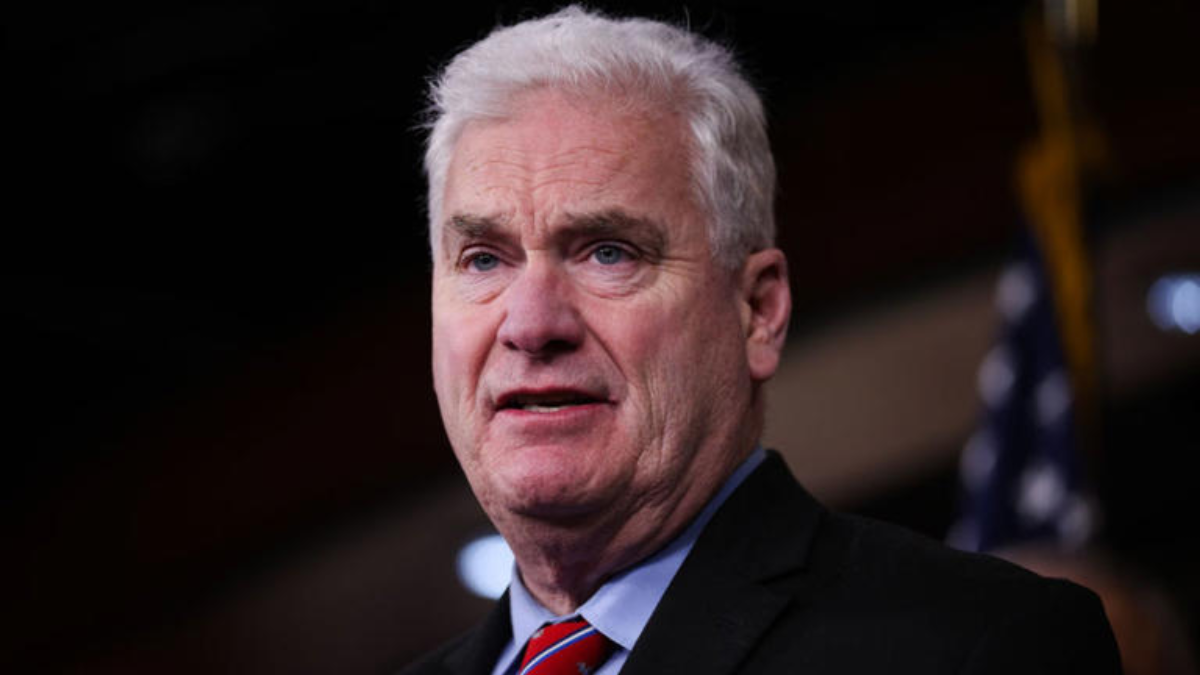Former President Donald Trump has once again ignited a political firestorm, this time over a proposal that many legal experts say crosses constitutional boundaries.
At a recent campaign rally, Trump claimed that if re-elected, he would explore deporting certain U.S. citizens with criminal records to foreign jails — a statement that drew instant scrutiny and put senior Republican lawmakers in the hot seat.
One senior Republican leader, when asked to comment on the proposal during a live Sunday news show, struggled to explain or support the legality of such a move.
The exchange, which quickly spread across social media, underscored the growing tension between Trump’s increasingly radical policy ideas and the GOP’s attempts to maintain mainstream voter support.
Trump’s Comments Raise Legal and Ethical Red Flags
During a rally in Pennsylvania earlier this month, Trump said, “We’re not going to keep housing criminals at taxpayer expense.
If they’re dangerous, we’ll send them to another country to deal with them — citizen or not.” He offered no detailed policy framework, but the implications were clear: even American citizens convicted of crimes could be deported and incarcerated abroad under a second Trump administration.
The comment stunned legal experts. U.S. citizens, by law, cannot be deported, and certainly not to serve prison time in foreign nations without consent or a legal agreement under extradition treaties.
“This kind of policy would be not just unconstitutional — it would be a gross violation of international law,” said Laurence Tribe, constitutional law professor emeritus at Harvard University. “You cannot exile your own citizens. That’s medieval.”
Senior Republican Struggles to Justify the Proposal
When asked about Trump’s remarks during a weekend interview, a top GOP lawmaker dodged questions, stumbled over basic legal principles, and ultimately offered no defense. “I’d need to see the specifics of what the President meant,” the senator said. “But I know he’s focused on restoring public safety, and I think voters appreciate that.”
The evasiveness didn’t sit well with viewers or commentators. Political analysts noted that the moment highlighted a broader issue within the GOP: how to support Trump’s populist platform without endorsing policies that are plainly unconstitutional.
“Republicans are walking a tightrope,” said Amy Walter, editor-in-chief of the Cook Political Report. “They don’t want to alienate Trump’s base, but they also don’t want to sound like they’re supporting lawless behavior.”

Backlash Grows Among Legal Experts and the Public
The backlash to Trump’s proposal was swift and widespread. Civil liberties organizations, legal scholars, and immigration advocates condemned the idea as dangerous authoritarianism.
“The idea of forcibly deporting citizens to serve time in foreign jails violates everything America stands for,” said Anthony Romero, executive director of the ACLU. “We’ve never done that. We don’t do that. It’s unconstitutional, unethical, and unlawful.”
Even some conservatives expressed discomfort. Judge Andrew Napolitano, a former Fox News legal analyst, said the plan was “legally impossible” and “a stunt.” He added, “No court in the United States would allow this. The Constitution guarantees citizens the right to due process and protection under U.S. law.”
Political Consequences Loom for the GOP
As Trump remains the dominant force in the Republican primary field, his proposals carry weight within the party. But they also come with significant political costs. Independent and moderate voters — key to winning swing states — may be turned off by rhetoric that sounds more dictatorial than democratic.
Several Republican strategists have expressed concern behind closed doors. “We’re trying to talk about inflation and border security,” said one anonymous GOP campaign advisor. “Then this happens, and we’re back to defending something that makes us look unhinged.”
Polling data suggests Trump’s core supporters are unfazed, or even energized, by such proposals. However, a recent Pew Research poll found that 62% of registered voters believe Trump would “expand presidential powers too far” if re-elected — a view that may grow stronger with each controversial statement.
Where This Leaves the 2024 Race
With Trump continuing to dominate the Republican field and other candidates struggling to gain traction, it’s clear that his platform — constitutional or not — will remain central to the 2024 election narrative. Whether Republicans will continue to defend ideas like deporting U.S. citizens to foreign prisons remains to be seen.
For now, Trump’s comments have forced another uncomfortable moment for the GOP: defend the indefensible, or risk alienating the party’s most powerful figure. Either way, the episode reveals the ongoing friction between Trump’s vision and America’s legal and constitutional framework.
As the 2024 election season continues to unfold, these moments will test not just the candidates, but the integrity of U.S. democratic institutions and the willingness of elected leaders to stand up for them.
For a more detailed legal breakdown of Trump’s proposal and its implications, visit The Brennan Center for Justice.
Disclaimer – Our team has carefully fact-checked this article to make sure it’s accurate and free from any misinformation. We’re dedicated to keeping our content honest and reliable for our readers.
